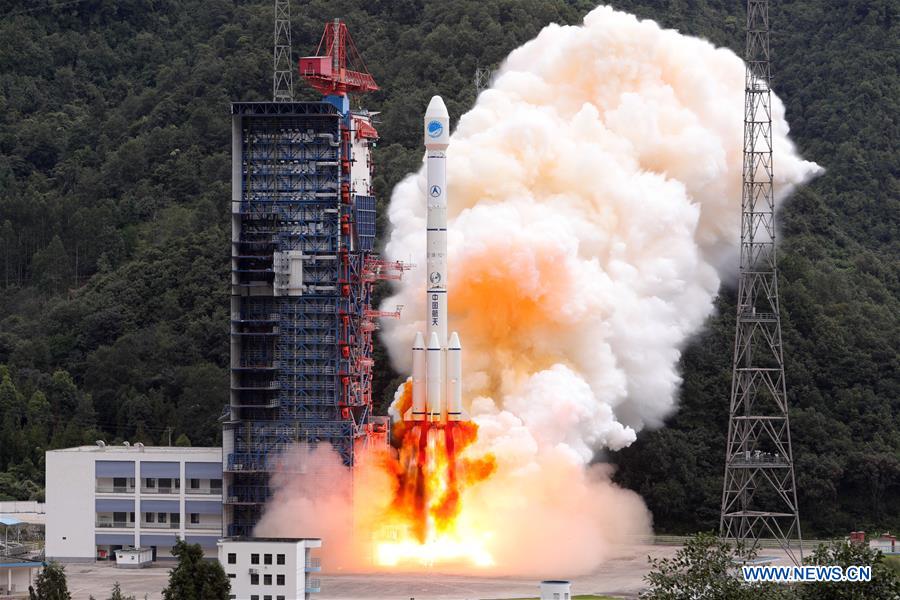News Center
China launches twin BeiDou-3 navigation satellites
October 15, 2018
China sends twin BeiDou-3 navigation satellites into space on a Long March-3B carrier rocket from Xichang Satellite Launch Center in Xichang, southwest China's Sichuan Province, Oct. 15, 2018. The satellites are the 39th and 40th of the BeiDou navigation system, and the 15th and 16th of the BeiDou-3 family. The launch was the 287th mission of the Long March carrier rocket series.(Xinhua/Liang Keyan)

China sent twin BeiDou-3 navigation satellites into space on a Long March-3B carrier rocket from Xichang Satellite Launch Center in Sichuan Province at 12:23 p.m. Monday.
The satellites entered their planned orbit after flying more than three hours, and will work with the 14 BeiDou-3 satellites already in orbit. The satellites are the 39th and 40th of the BeiDou navigation system, and the 15th and 16th of the BeiDou-3 family.
The satellites and the rocket for Monday's launch were developed by the Innovation Academy for Microsatellites of the Chinese Academy of Sciences and the China Academy of Launch Vehicle Technology, respectively. The launch was the 287th mission of the Long March rocket series.
This year has seen an intensive launch of BeiDou satellites. China plans to send another three BeiDou-3 satellites into space to form a basic system to provide services for countries participating in the Belt and Road Initiative, by the end of the year.
Named after the Chinese term for the Big Dipper, the BeiDou system started serving China in 2000 and the Asia-Pacific region in 2012.
Over the past five years, the system has helped rescue more than 10,000 fishermen. More than 40,000 fishing vessels and around 4.8 million commercial vehicles in China are equipped with BeiDou.
The system is also helping monitor the structural integrity of highways, pipelines, dams and bridges.
More than 300 million mobile phones, 40 percent of all smartphones in China, can connect to BeiDou.
The system now covers more than 50 countries with a total population of more than 3 billion. By 2020, BeiDou will provide first-class services around the globe.
